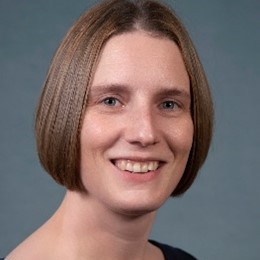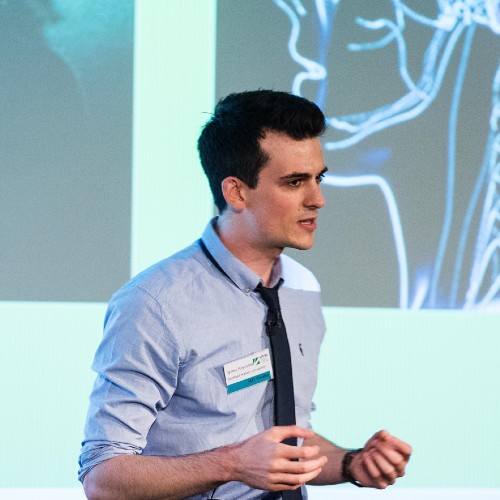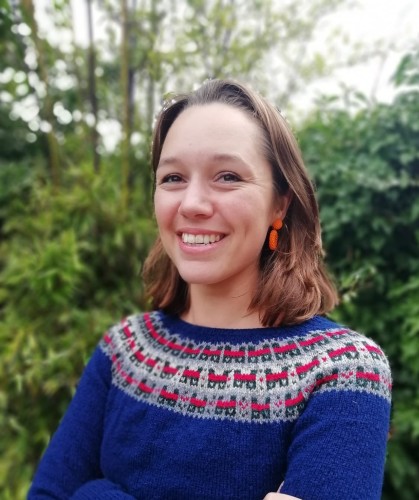ASO Webinar: Obesity and the Environment- where are we now?

This webinar will provide attendees with insight into some cutting edge research that is being conducted in the UK in order to improve our physical environment and reduce the prevalence of obesity.
This webinar was chaired by Dr Rebecca Richards
- The impact of food marketing and efficacy of restrictive policies (Dr Emma Boyland)
- Creating healthier food environments in cafeterias (Dr James Reynolds)
- Investigating online access to takeaway food (Matt Keeble)
- Talk will be followed by a panel discussion with all speakers and Dr Hannah Forde (chaired by Dr Rebecca Richards)
Novo Nordisk has provided sponsorship to the Association for the Study of Obesity (ASO) to fully fund all costs for the development of this webinar, including creation, organisation, production and administration. Novo Nordisk has had no influence on the content and full editorial control remains the sole responsibility of ASO. None of the speakers have received a fee for their participation in this webinar, and ASO has been fully responsible for engaging with participants.
Speakers
 Dr Emma Boyland
Dr Emma Boyland
University of Liverpool
Emma Boyland is a psychologist and senior lecturer based at the University of Liverpool, where she is lead of the Appetite and Obesity Research group. Emma has over 15 years of experience in eating behaviour research. Her work principally focuses on the food environment, characterising the foods and beverages available and the way they are marketed via traditional and digital means, as well as seeking to understand how this impacts eating behaviours (choice and intake) and determinants of eating behaviour (beliefs, attitudes, preferences), particularly in children. She has received research funding to her institution from the World Health Organization (WHO), the Australian Research Council, Cancer Research UK, Public Health England, and the Wellcome Trust. Emma has published over 90 peer-reviewed journal articles, 8 book chapters and three WHO Europe reports on food marketing. She has recently completed two WHO commissioned reviews on the impact of food marketing on eating behaviour and health and the effectiveness of food marketing policies to inform international WHO guidelines. She sits on the WHO Global Steering Committee for digital food marketing and is an expert advisor to both WHO Europe and Unicef, leading food marketing monitoring studies across Europe, Latin America, and the East Asia-Pacific region. She is a member of the leadership group for the International Network for Food and Obesity/non-communicable diseases Research, Monitoring and Action Support (INFORMAS) food promotion module. Dr Boyland has twice been invited to give oral evidence to the UK Parliament’s Health and Social Care Committee inquiries into childhood obesity that directly inform the Childhood Obesity Plan for the UK.
 Dr James Reynolds
Dr James Reynolds
University of Aston
James Reynolds is a lecturer at Aston university within the School of Psychology. Over the past six years his research has focussed on many different perspectives on obesity. This includes investigating how individuals regulate their own eating behaviours and physical activity. This strand of research included working with regional weight loss classes and studying factors that lead to weight loss over the course of the programme. His work also involves evaluating interventions that restructure the physical environment to change eating behaviours. James has run two major UK-wide trials in a total of 29 cafeterias, involving over 30,000 customers, to evaluate the effectiveness of three different interventions within the physical environment. The final strand of his research is evaluating the public’s responses to government obesity policies. This work is crucial to both understanding why the public may oppose effective obesity policies and how to increase support for these policies. James has published 11 peer-reviewed journal articles and has recently completed a report on reducing consumption of red meat, which was commissioned by Global Food Security.
 Matt Keeble
Matt Keeble
MRC Epidemiology Unit, University of Cambridge
Matt is currently a PhD student based at the Centre for Diet and Activity Research within the MRC Epidemiology Unit at the University of Cambridge, and is supported by an NIHR School for Public Health Research studentship. Matt's research focusses on how and why people use online food delivery services to purchase takeaway food, and how these services may increase access to unhealthy food.
Panellist
 Hannah Forde
Hannah Forde
MRC Epidemiology Unit, University of Cambridge
Hannah Forde is a Research Associate at the Centre for Diet and Activity Research (CEDAR) at the University of Cambridge. She is interested in researching ways to regulate the commercial food system to improve human and planetary health. Hannah is currently conducting qualitative research to prepare for new UK restrictions on TV food advertising and online food marketing. Prior to this, she completed her PhD research at CEDAR with the support of funding from Public Health England (PHE) and the University of Cambridge ESRC Doctoral Training Partnership. Her research examined changes in soft drinks marketing in response to the UK Soft Drinks Industry Levy, a landmark policy in the UK Government’s Childhood Obesity Plan. Hannah holds an undergraduate degree in Economics and Statistics from the University of St Andrews, and a Master’s degree in Nutrition, Physical Activity and Public Health from the University of Bristol. She has previously worked in market and social research in both London and Edinburgh. During her PhD, she also completed an internship at the Department of Environment, Food & Rural Affairs, which was funded by the ESRC Doctoral Training Partnership
Chair
Rebecca Richards
Postdoctoral Research Associate and Practitioner Health psychologist, University of Cambridge
Rebecca completed her PhD in January 2018 at the Division of Population Medicine, Cardiff University. Her PhD focused on the development and evaluation of a smartphone app intervention to help patients with cancer to meet their information needs. Prior to this, Rebecca completed an MSc in Health Psychology at the University College London. Alongside her PhD, Rebecca completed the doctoral-level Stage 2 Qualification in Health Psychology with the British Psychology Society (2014-2018), granting her Chartered Health Psychologist status. She is registered with the Health and Care Professions Council and practices in adult weight management. In October 2020, Rebecca was elected as a Trustee for the Association for the Study of Obesity (ASO), for a three-year term.




